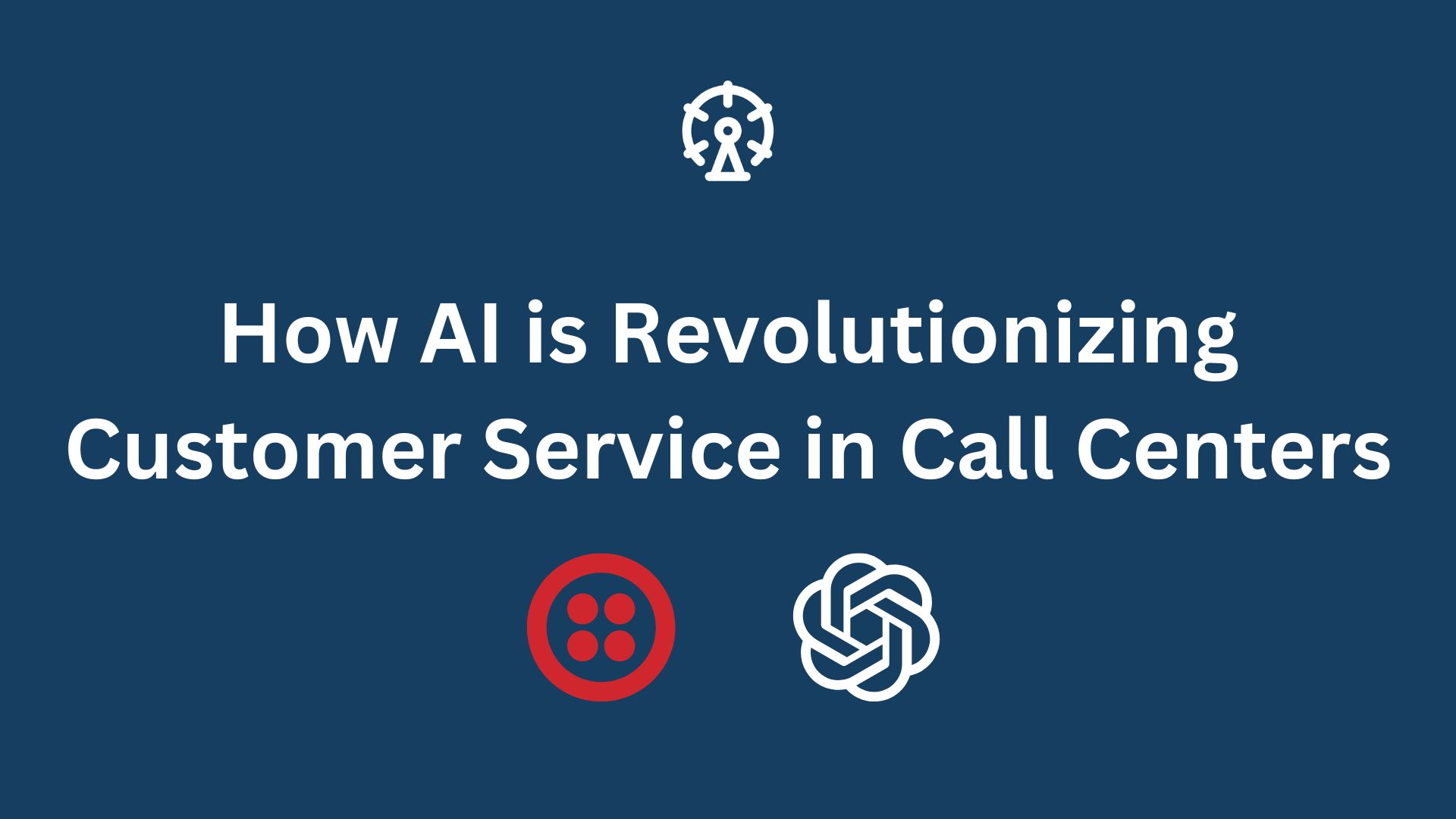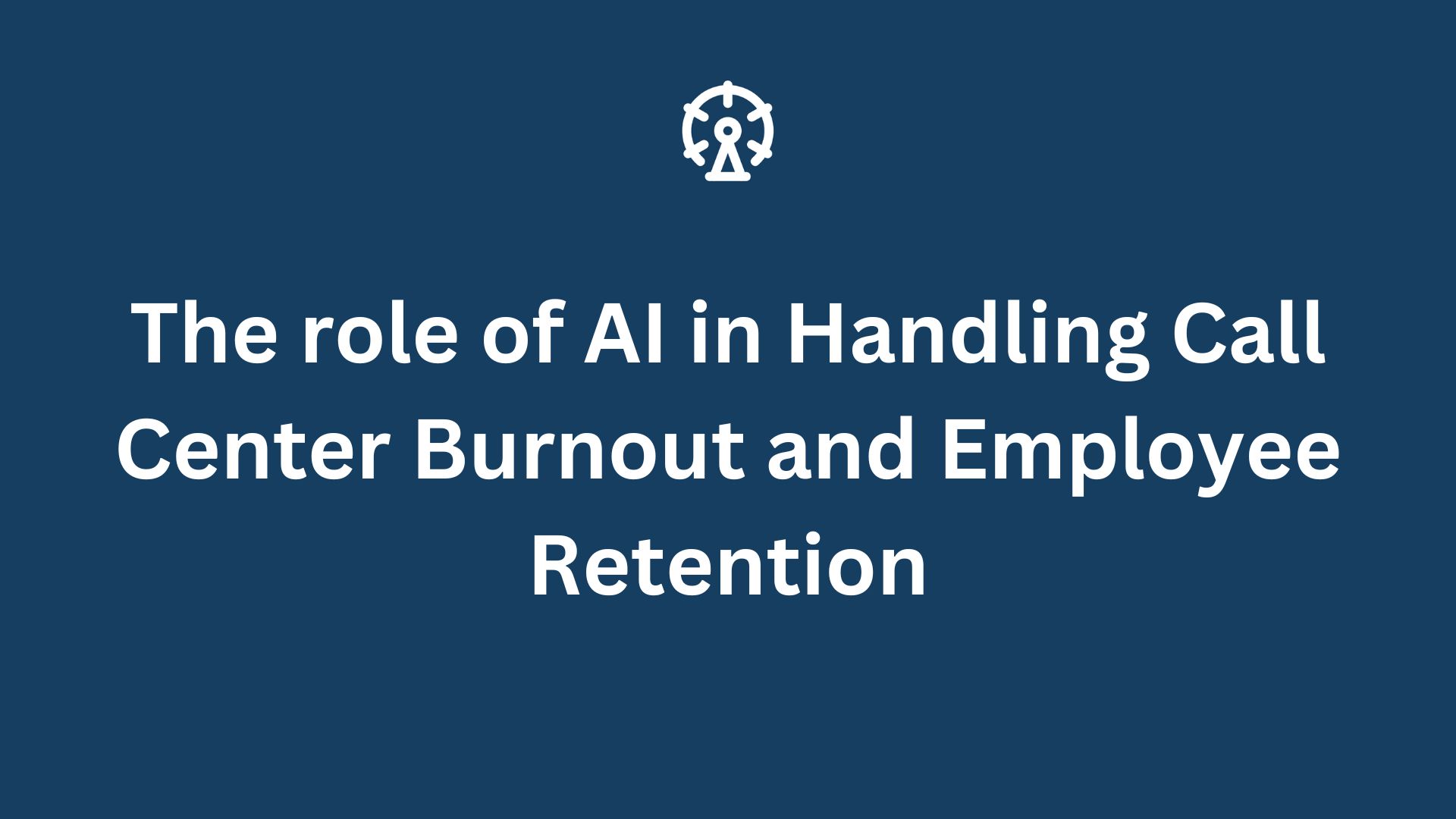How AI is Revolutionizing Customer Service in Call Centers
In the fast-paced world of customer service, businesses face increasing pressure to deliver quicker, more efficient, and personalized support. Customers expect answers at their fingertips and are no longer willing to wait in long call queues or deal with frustrating automated systems that don’t understand their needs. Enter artificial intelligence (AI), a game-changer that’s reshaping the call center landscape.
AI isn’t just a buzzword anymore—it’s a practical solution transforming the way businesses handle customer interactions. In this article, we’ll dive into how AI is revolutionizing call centers, the key benefits it offers, and why it’s the future of customer service.
The Shift from Traditional to AI-Powered Call Centers
For decades, call centers have relied heavily on human agents to manage customer interactions. While skilled agents are invaluable, traditional call center operations often come with challenges:
Long wait times during peak hours
High turnover rates among agents due to repetitive tasks
Limited scalability without significant cost increases
Difficulty providing consistent service quality
AI addresses these challenges head-on, offering solutions that augment human capabilities rather than replacing them. Modern AI-powered call centers leverage advanced technologies such as natural language processing (NLP), machine learning, and sentiment analysis to streamline operations and enhance customer experiences.
Key Ways AI is Transforming Call Centers
1. Automated Customer Support with Virtual Agents
Virtual agents, also known as AI chatbots or voice bots, are among the most visible applications of AI in call centers. These bots can handle common customer queries—such as checking account balances, tracking orders, or resetting passwords—without human intervention. Available 24/7, virtual agents reduce wait times and free up human agents to focus on complex issues that require a personal touch.
Example: A customer calls a utility company to inquire about their latest bill. Instead of waiting to speak to an agent, an AI-powered virtual assistant instantly provides the requested information.
2. Improved Call Routing
Traditional call routing systems often rely on basic inputs like “Press 1 for sales” or “Press 2 for support.” AI takes this a step further by analyzing the context and intent of a customer’s inquiry to route them to the most appropriate agent or department. This ensures faster resolutions and reduces frustration.
Example: An AI system detects a customer’s frustration from their tone and prioritizes routing them to a senior support agent trained in de-escalation.
3. Personalized Customer Experiences
AI thrives on data. By analyzing a customer’s interaction history, purchase behavior, and preferences, AI can provide personalized recommendations and responses. This level of personalization not only improves customer satisfaction but also builds loyalty.
Example: A telecom company’s AI suggests a better phone plan to a customer based on their usage patterns, proactively addressing their needs before they even ask.
4. Real-Time Assistance for Human Agents
AI doesn’t just work behind the scenes; it can actively assist human agents during calls. AI tools can provide agents with real-time suggestions, such as scripts for handling specific queries, product recommendations, or even alerts about potential upsell opportunities.
Example: During a call, an AI system identifies that a customer is eligible for a discount on a premium service and prompts the agent to offer it.
5. Advanced Sentiment Analysis
AI can analyze a customer’s tone, language, and sentiment in real-time to gauge their emotional state. This insight helps agents adjust their approach—whether it’s being more empathetic with an upset customer or adopting a friendly tone with a satisfied one.
Example: An AI system flags a potentially irate customer and notifies the agent to focus on resolving the issue calmly and efficiently.
6. Proactive Customer Engagement
With predictive analytics, AI can anticipate customer needs and proactively reach out with solutions. For instance, if a customer’s subscription is about to expire, an AI system can send a reminder or offer a renewal incentive.
Example: A streaming service’s AI identifies customers who haven’t logged in recently and sends personalized emails suggesting new content based on their viewing history.
The Benefits of AI in Call Centers
The integration of AI into call centers delivers a wealth of benefits:
- Cost Savings
AI reduces the need for large teams of human agents, cutting operational costs while maintaining high levels of service.
- Scalability
AI solutions can handle thousands of customer interactions simultaneously, making them ideal for businesses experiencing rapid growth or seasonal spikes in demand.
- Improved Efficiency
By automating routine tasks, AI allows human agents to focus on complex or emotionally sensitive issues, increasing overall productivity.
- 24/7 Availability
Unlike human agents, AI-powered systems don’t need breaks. They provide round-the-clock support, ensuring customers always have access to assistance.
- Enhanced Customer Satisfaction
With faster response times, personalized experiences, and proactive engagement, AI helps businesses deliver a superior customer service experience.
The Human-AI Collaboration
While AI offers numerous advantages, it’s important to emphasize that it’s not about replacing humans. The best results come from combining AI capabilities with human expertise. AI excels at handling repetitive tasks and analyzing data, while human agents bring empathy, creativity, and critical thinking to the table.
By working together, AI and human agents can create a seamless and efficient customer service experience that meets the demands of today’s consumers.
Conclusion
AI is no longer just a futuristic concept; it’s a practical tool that’s transforming call centers and redefining customer service. By automating routine tasks, improving personalization, and enhancing efficiency, AI enables businesses to meet and exceed customer expectations.
As technology continues to evolve, the role of AI in call centers will only grow. Businesses that embrace this shift now will be well-positioned to lead in the competitive landscape of tomorrow. If your organization is ready to take the next step, consider exploring AI-powered solutions to revolutionize your customer service operations.




